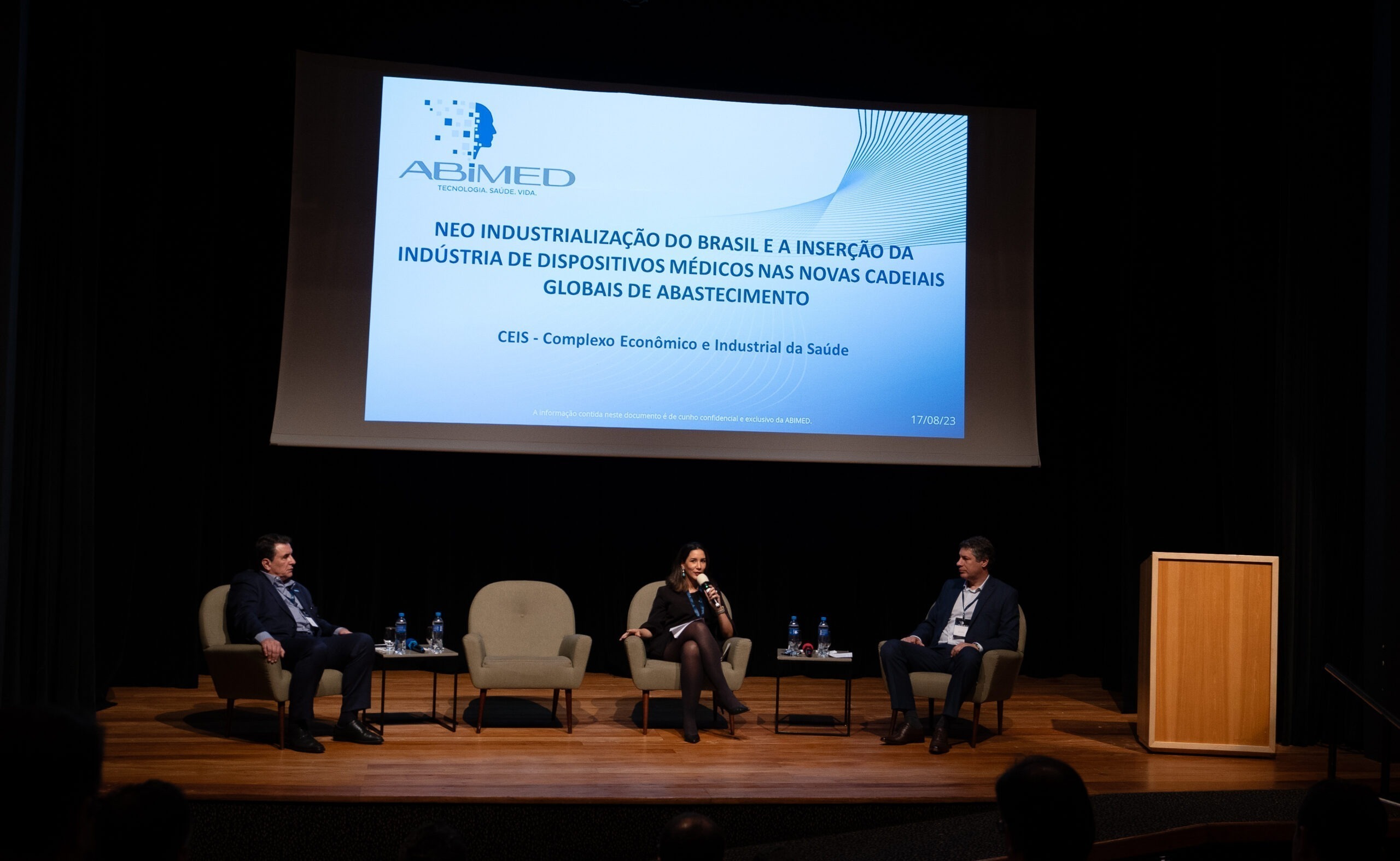Neo-industrialization of Brazil

Publicado em 19/09/2023 • News • English
On August 17th, ABIMED Dialogues held an event to discuss the insertion of the medical devices industry into the new global supply chains, with a view to government initiatives to encourage and attract investment and RD&I.
Those involved evaluated that the moment brings good prospects for the sector. According to Juliana Cardoso, executive secretary of the São Paulo State Secretariat for Economic Development and Invest SP, “listening to the productive sector, entrepreneurs and investors is essential. Initiatives like this are fundamental not only to strengthen the relationship between the government and the productive sector, but also to make the best decisions.” The executive secretary pointed out that the portfolio encompasses the state’s strongest industries, such as chemicals, food and beverages and health and pharmaceuticals. She further stated that the process of internalizing healthcare will be an excellent opportunity for medical device companies.
Fernando Silveira Filho, executive president of ABIMED, highlighted two important messages shared by the executive secretary: the possibility of new investments with the use of supplementary credit resources and the new policy for the market, bringing investments to make São Paulo an export hub, which should favor the medical devices segment.
“Our priority is to deliver technologies that solve health problems,” said Diogo Penha Soares, general coordinator of the Mechanical, Electronic and Materials Base (CGMEC/DECEIIS) at the Ministry of Health. He highlighted the re-creation of the Executive Group of the Health Economic-Industrial Complex (Geceis), to strengthen production and innovation in the sector. Through technology transfer, the goal is for 70% of innovation products purchased by the SUS (Unified Health System) to be national, i.e. for every R$10.00 spent, R$7.00 to be produced domestically. Everything will depend, however, on the approval of the Tax Reform, which he considers fundamental.
Diego Pizetta, general coordinator of the Pharmaceutical, Bio and Nanotechnology Industries at the Ministry of Development, Industry, Trade and Services, pointed out that the current industrial policy works with a mission vision, not with sectors. For the health mission, the aim is to have a complex that is resilient and expands access for the population, reducing external dependency. “ABIMED will be called upon to help identify the bottlenecks and the instruments needed to achieve this goal,” he added.

 Portuguese
Portuguese
 Spanish
Spanish
 English
English






















